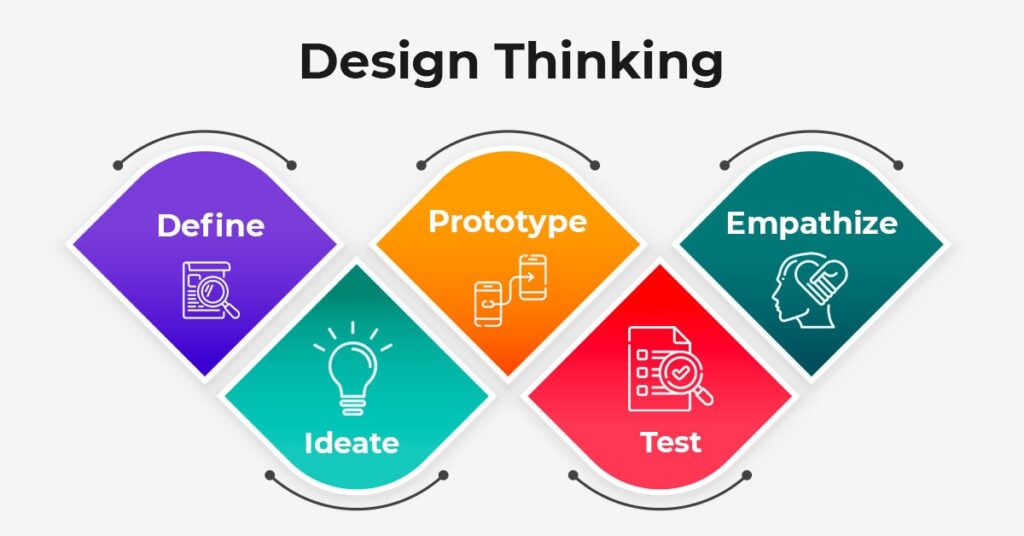
Course Overview
This course introduces participants to the principles of Design Thinking, a human-centered approach to innovation that combines creativity and problem-solving. Participants will learn how to identify challenges, generate ideas, prototype solutions, and refine their projects through iteration. The course is highly interactive, using real-world case studies, hands-on activities, and group collaboration to develop creative problem-solving skills applicable in education, business, and everyday life.
Aims and Objectives
- To introduce participants to the five stages of Design Thinking: Empathize, Define, Ideate, Prototype, and Test.
- To develop critical thinking and problem-solving skills through structured creative processes.
- To foster collaboration, teamwork, and user-centered innovation.
- To apply Design Thinking methodologies to real-life challenges in various fields.
- To build confidence in using creativity as a tool for innovation and problem-solving.
Learning Outcomes
By the end of the course, participants will be able to:
- Understand and apply the five-step Design Thinking framework.
- Use empathy to define real user needs and problems.
- Generate and evaluate creative solutions through brainstorming techniques.
- Build low-fidelity prototypes and test ideas quickly.
- Improve problem-solving abilities in personal, educational, and professional contexts.
- Work effectively in teams and communicate ideas clearly.
Daily Program
Day 1: Introduction to Design Thinking
- What is Design Thinking? Why is it important?
- Case Studies: Real-World Applications of Design Thinking
- Team Icebreaker: Problem-Solving Challenge
Day 2: Empathy & Problem Definition
- Understanding User Needs: Empathy Mapping & Interviews
- Identifying and Defining the Right Problem
- Group Activity: Problem Statement Formulation
Day 3: Ideation & Creativity Techniques
- Brainstorming & Mind Mapping Techniques
- Rapid Idea Generation & Selection
- Group Challenge: Creating a Solution Concept
Day 4: Prototyping & Testing
- Low-Fidelity Prototypes: Paper & Digital Prototyping
- Gathering Feedback & Iterating Solutions
- Hands-on Workshop: Building and Presenting Prototypes
Day 5: Final Presentations & Real-World Applications
- Pitching Ideas & Presenting Prototypes
- Real-World Applications: Using Design Thinking in Business & Education
- Final Reflections & Feedback
Mobility Activities
- Visit to an Innovation Hub or Design Lab
- Hands-on Workshop with Industry Experts
- Community-Based Design Challenge: Solving Local Issues with Design Thinking
- Outdoor Problem-Solving Exercise: Applying Design Thinking in Everyday Situations
Assessment Methods
- Participation in Workshops and Group Activities
- Problem-Solving Challenges and Creativity Tests
- Prototype Development and Presentation
- Self-Reflection on Learning and Application
